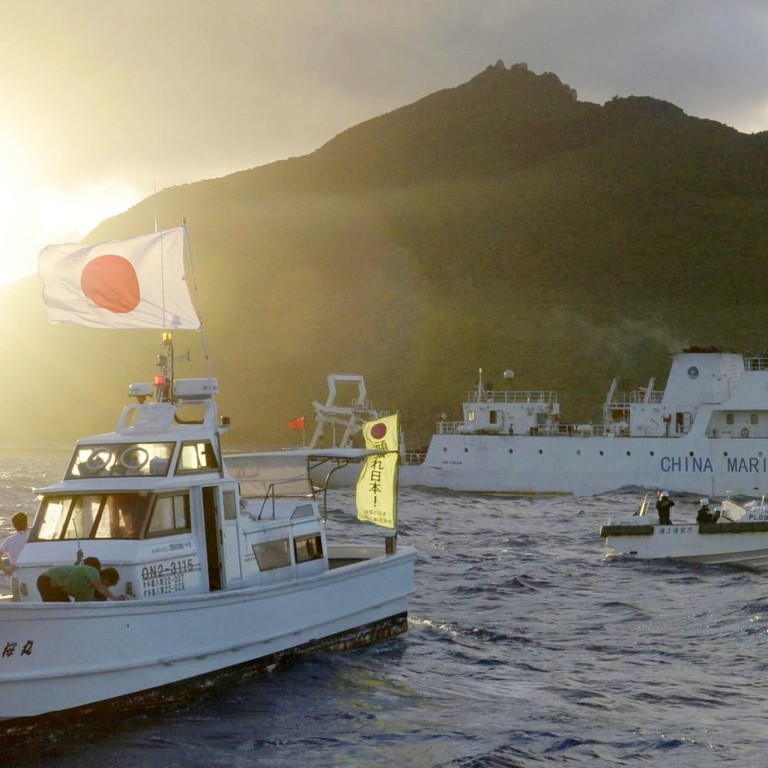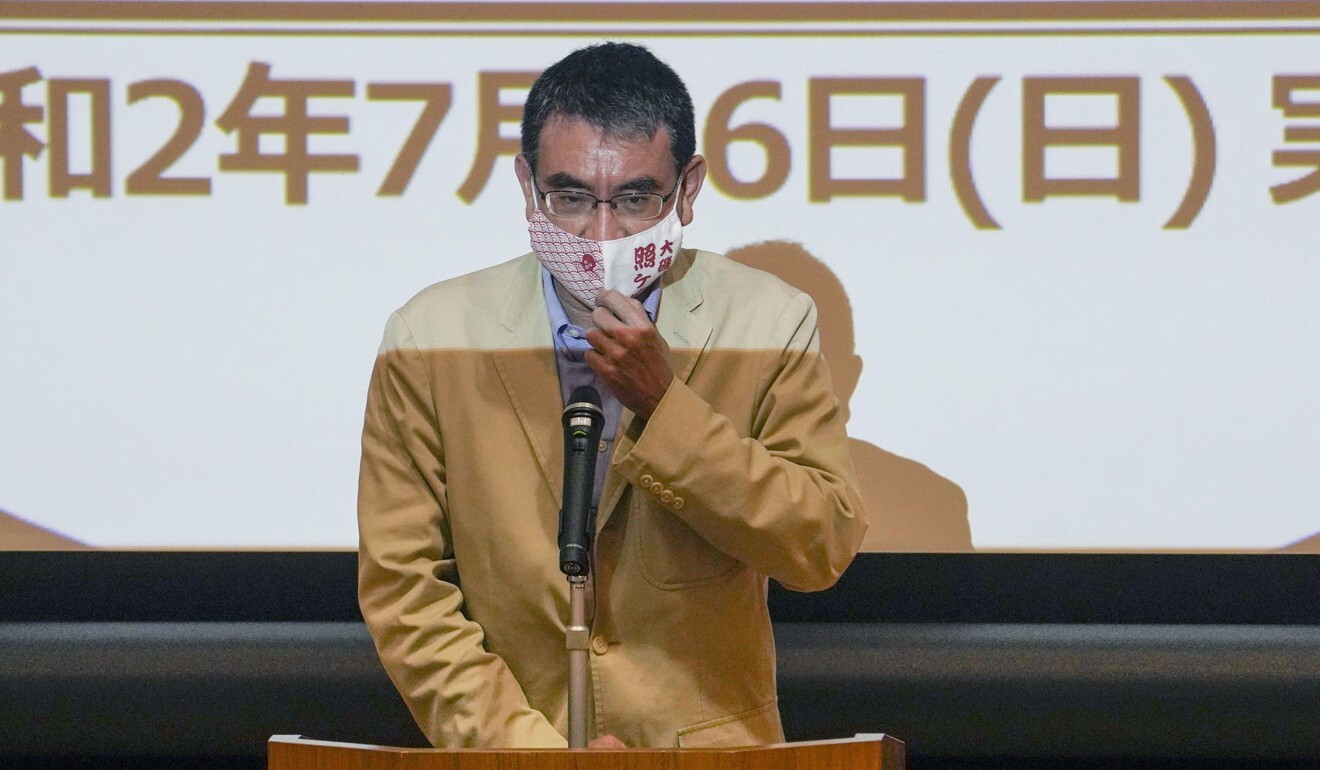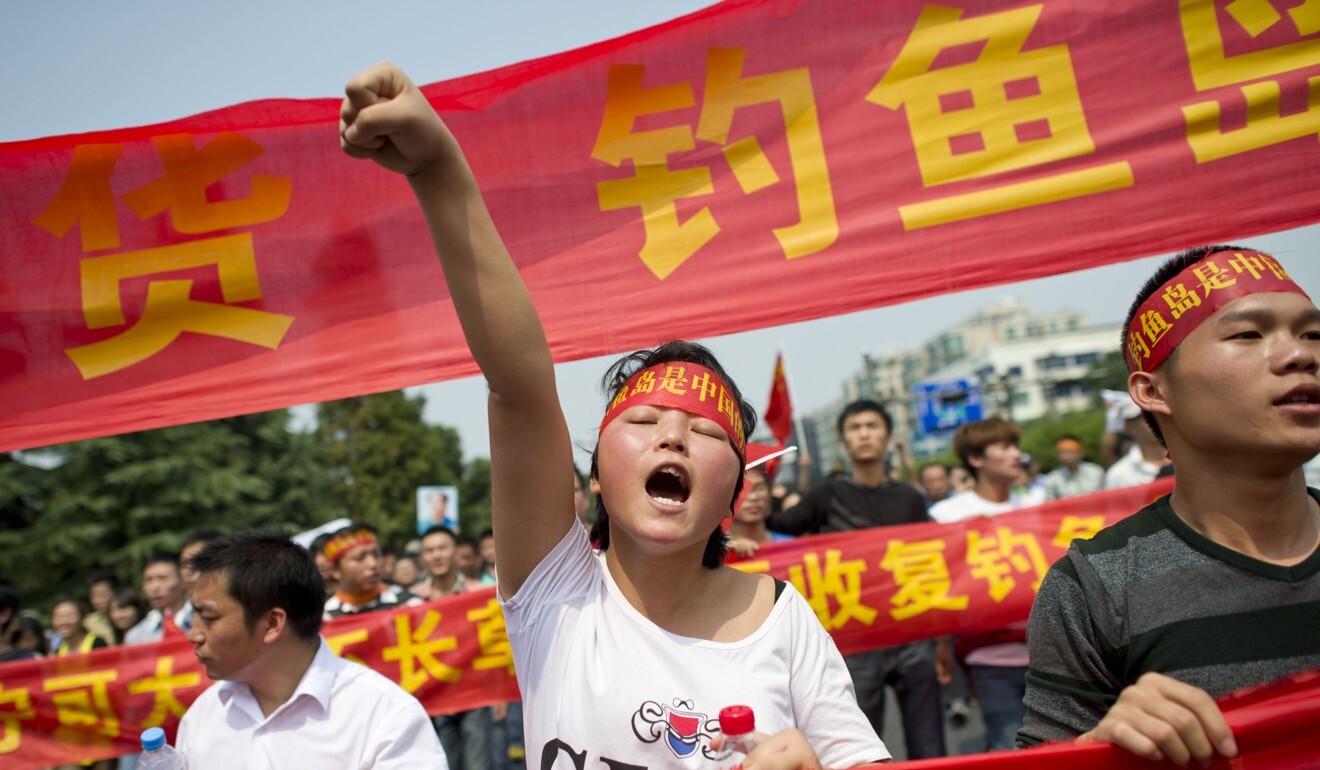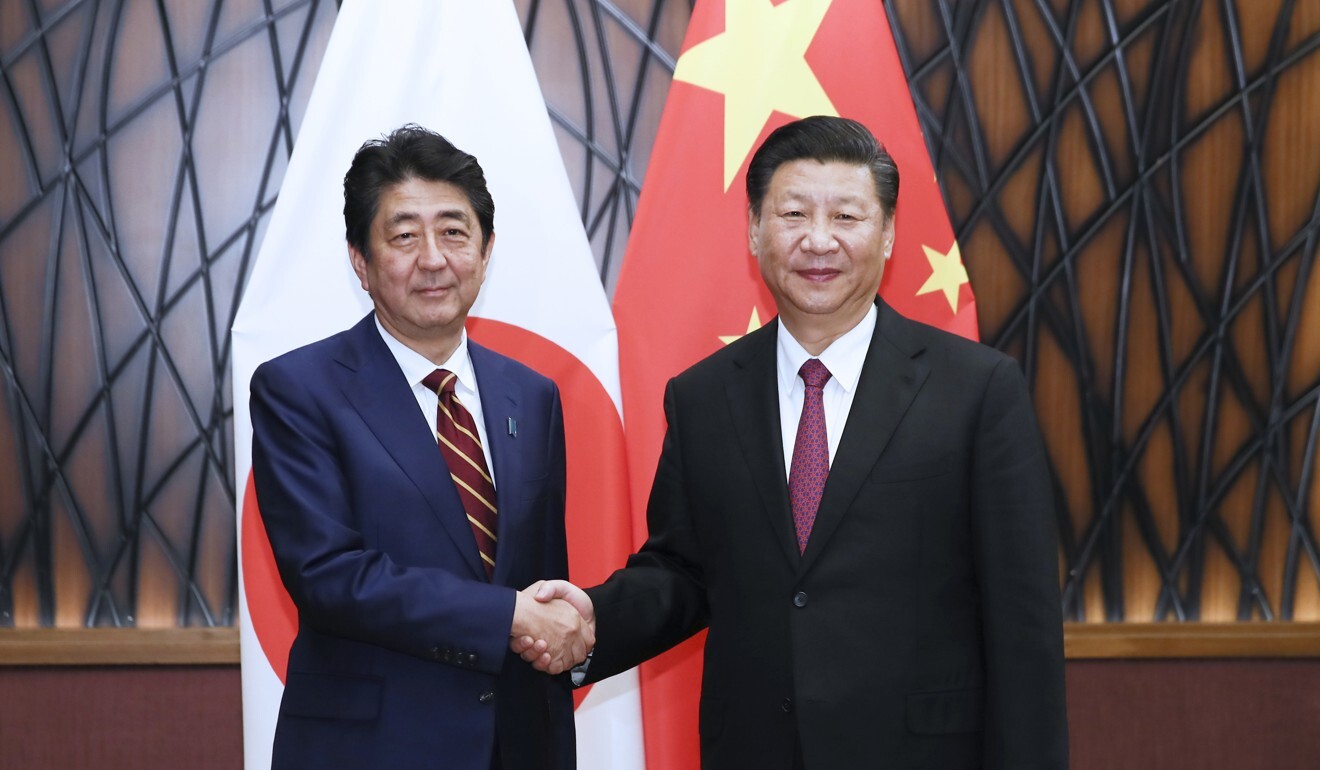
Japan places military on standby for ‘intrusions’ by dozens of Chinese fishing boats in disputed waters
- Beijing has reportedly lifted a ban on Chinese boats operating near the Diaoyu Islands, which Japan controls and calls the Senkakus
- China has emphasised its claims to sovereignty over the islands and surrounding waters, insisting Japan has no right to demand the boats leave
Explained: Diaoyu/Senkaku islands dispute
Analysts warn Tokyo will have limited options to respond to as many as 100 ships, particularly if they are escorted by Chinese coastguard vessels.

Defence Minister Taro Kono responded on August 4, telling a press conference Self-Defence Forces (SDF) units are ready to respond. Pressed on what units might be present and the action that might be taken, the minister declined to provide further details.
The Sankei quoted a senior government official condemning Beijing’s warning as a “vengeful declaration of intent and a strategic move designed to justify provocations after the end of the fishing ban”.
When a previous ban was lifted by Beijing in 2016, 72 fishing vessels accompanied by 28 Chinese government ships operated in territorial waters around the islands for four days, largely with impunity.
Chinese coastguard vessels have kept up almost constant pressure over the past 18 months, entering Japan’s territorial waters or the contiguous zone around the islands at will and ignoring requests to leave. Until recently, Chinese government ships were present in the area for a record 111 consecutive days before leaving before a typhoon.
“That means they are effectively replacing the local government of those islands and using that to reinforce their claims to sovereign control. That’s quite serious and a nightmare for Japan to deal with.”

Mulloy said Japan’s coastguard was already stretched, with units in the north monitoring Russian forces, others operating in the Sea of Japan to curb poaching by North Korean fishing boats and yet more operating in different parts of the Japanese archipelago. China, with a far larger coastguard and navy, is aware of those limitations and is probing for Japan’s weaknesses, he said.
“The coastguard could probably handle half a dozen fishing boats but if we see 200 boats accompanied by Chinese government ships, then there is only a certain amount they will be able to do,” Mulloy said, suggesting that Kono’s threat to deploy the SDF is therefore a clear shot across Beijing’s bows.
There are many who believe the administration of Prime Minister Shinzo Abe needs to be far more firm with Beijing
Mulloy said he expected Japan’s Maritime Self-Defence Force (MSDF) to be prepared for any confrontation, but to remain – as it has in the past – about 180km from a potential point of confrontation. That would allow MSDF vessels to support the coastguard should it be needed but also be close enough to assist should there be an accident and a ship sinks. By keeping that distance, Japan can also argue it is not inflaming the situation.
The MSDF will, however, use its advanced patrol aircraft to track both surface vessels and hostile submarines, should any be operating in the area, to provide early warning to surface units.
Although Japan will be able to monitor any intrusions, it will still be limited in its ability to force foreign-flagged ships to leave its territorial waters, said Akitoshi Miyashita, a professor of international relations at Tokyo International University.
Japan boosts East China Sea capacity to defend islands: US report
“As far as I can see, there is not much that even the SDF will be able to do to keep a large number of fishing boats away from those waters,” he said. “Militarily there is not much that can be done, so perhaps the most significant thing would be to show resilience, to demonstrate Japan is standing firm and to communicate that to the Chinese government.”
Kono is almost certainly being urged to adopt a more uncompromising stance towards China, Miyashita said.

“Perhaps the Chinese think everyone is picking fights with them, but we have to remember that everything Beijing does means something. Everything is strategic. They may seem dead set on gaining control of the Senkakus because that would demonstrate they have the military power to gain any piece of territory they set their hearts on. And that might also be designed as a message to Taiwan.”

